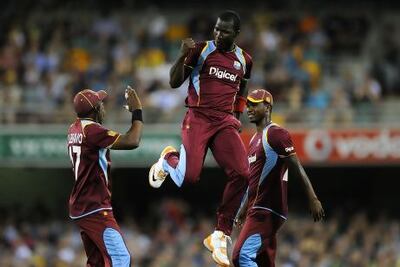Azeem Rafiq, a Pakistan-born Englishman, has thrown his country’s cricket establishment into turmoil by revealing in detail how he experienced racial harassment and bullying during a short-lived career. Tragic as his own professional journey has ended up becoming, it is possible that his powerful testimony on Tuesday to a British parliamentary select committee will bring about much-needed change in cricketing cultures not just in England but elsewhere in the world. That can only be a good thing.
In his testimony, Rafiq spoke eloquently about his struggles as a person of colour in a cricket community dominated by white men. His revelations ranged from being repeatedly called a “P***”, a derogatory term used in Britain to describe people of Pakistani heritage, to being forced to drink alcohol as a teenager by those who were aware of his Islamic faith. He battled back tears when he spoke about having received little support from the management of the Yorkshire County Club, where he was a longtime player, after his wife gave birth to a stillborn baby in 2017; thereby suggesting that there would have been more sympathy and support had he been white.
Rafiq played for Yorkshire, in England’s premier domestic cricket circuit, over two stints that spanned almost a decade. After securing a release from his contract with the club in 2018, he now runs a fish and chips shop in the northern English town of Barnsley. He is only 31 years old, so it’s not unreasonable to assume he could have played at the elite level for a few more years.
“Do I believe I lost my career to racism? Yes, I do,” he told the committee.
The names of several high-profile cricketers, including those who either played or continue to play for the England national team, have emerged in Rafiq’s testimony. One such name is that of former England and Yorkshire captain Michael Vaughan, who in 2009 allegedly told a group of teammates of Asian descent that there were too many of them in the county side. Vaughan, now a commentator and writer, denies the allegation.
Rafiq also expressed disappointment about Joe Root, the current England captain who, like Vaughan during his playing days, is part of the Yorkshire county team. Rafiq described Root as a “good man” who would, nonetheless, have seen and heard other teammates making racist remarks yet did nothing about it. For his part, Root has denied ever witnessing a racist incident while playing for Yorkshire.
Some might say Root is being disingenuous. But even if one were to assume this to be the case, it wouldn’t be surprising if cricketers would remain silent, especially when players close to them are in the line of fire. Cricket, like any other team sport, is built around “mate-ship” and players have one another’s back. And yet, of course, if Root was indeed protecting his mates, that would be disappointing for all those who have otherwise been impressed with his ambassadorial role as the national team captain.

That only makes Rafiq’s testimony and the media interviews he has given over the past few months even more courageous. He is risking life and limb – he is known to have received threats from unknown sources during this period – for bringing to light a problem that continues to infest the game all over the world.
Darren Sammy is a case in point. Last year, the World Cup-winning captain from the Caribbean island of Saint Lucia was angry and disappointed upon discovering that a nickname given to him by his teammates in the annual Indian Premier League (IPL) franchise competition was in fact a derogatory term. Some of his Indian teammates used to call him “kalu” – meaning "black" – to his face, even describing it as a term of endearment, even though it isn’t. Sadly, Sammy is not the first player to have been called “kalu” and he's unlikely to be the last.
The question to ask, then, is while one must not condone racism or bullying, how much of these racial slurs and bullying tendencies stems from a lack of understanding or knowledge of foreign cultures. It's painfully apparent that some cricketers, particularly the younger ones, genuinely don't know that what they consider to be banter, can be outright racist for someone from a different cultural context.

This is where team managements bear a great deal of responsibility. It’s all well for cricket's custodians and tournament organisers to publish their codes of conduct on racism, which they do. In fact, it has become fashionable for organisers to announce a “zero tolerance” towards racism. But what does zero tolerance really mean? Can one assume that all players, whatever their backgrounds, will know what actions, gestures, remarks or words are considered racist and what aren't? There has to be a more concerted effort to educate up and coming players about what's acceptable and what isn't.
The English county championship has, for decades, been a wonderful platform for cricketers from across the globe to make a name for themselves. But for non-white players to complain about racism – even to this day – can only mean that cultural awareness continues to lack at the ground level and, therefore, something needs to be done to tackle it. For any club, building a team can no longer be just about winning games and trophies; it also has to be about developing genuine kinship, which, among other things, has to involve breaking down cultural barriers between players from different backgrounds.
The same needs to apply to the IPL, which has been around for just 13 years, but is showcased as a 21st-century cricket competition that is big on diversity. Teams need to do more than just talk the talk about stamping out racism.
As for Rafiq, his career is undoubtedly over. But if his painful testimony can help begin the process of tackling racist attitudes and other forms of bigotry in both domestic and international cricket, it will be his most significant contribution to the game – far more impactful, perhaps, than his on-field performances were for Yorkshire.


